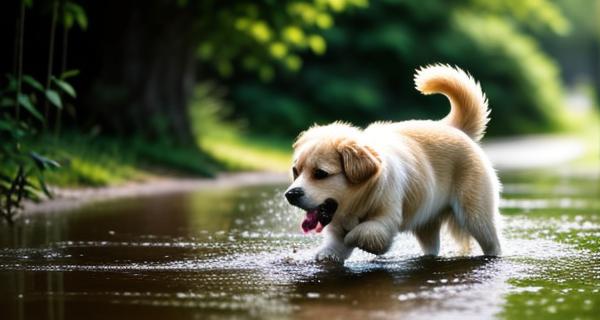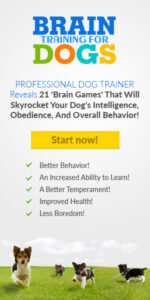Paws, Parasites & Puddles: How to Keep Your Dog Healthy During the Rains
Dog Parasite Prevention
## Paws, Parasites & Puddles: How to Keep Your Dog Healthy During the Rains
Rainy days are cozy for us, but they can unfortunately bring increased risks for our furry friends. While puddles and muddy paws might seem harmless, they can be breeding grounds for parasites that can significantly impact your dog’s health. Protecting your pup from these sneaky invaders is crucial for their well-being.
Parasites, both internal and external, thrive in damp environments. Fleas, ticks, worms, and even heartworm become more prevalent during the wetter months. Fleas and ticks can cause itchy skin, discomfort, and transmit diseases. Internal parasites like worms can lead to digestive issues, weight loss, and even anemia. Heartworm, transmitted by mosquitoes that are more active in humid conditions, is a particularly serious threat.
Preventative measures are key! Regular application of veterinarian-recommended flea and tick treatments is non-negotiable. Talk to your vet about year-round deworming, as parasites aren’t seasonal. Don’t forget about heartworm prevention – a simple monthly chewable or injection can save your dog’s life.
Beyond medication, be mindful of where your dog is walking. Try to avoid areas with stagnant water or tall grass. After rainy walks, thoroughly check your dog for ticks, paying close attention to ears, necks, and legs.
A proactive approach to parasite prevention ensures your dog can enjoy the rainy season – and all seasons – feeling happy, healthy, and parasite-free. Consult your veterinarian for a personalized prevention plan tailored to your dog’s lifestyle and risk factors.
Rain-Related Dog Health Concerns
Paws, Parasites & Puddles: How to Keep Your Dog Healthy During the Rains
Rainy days can be a bummer for everyone, but they present unique health challenges for our furry companions. While a little puddle splashing is great fun, prolonged exposure to wet conditions can lead to several concerns. Let’s dive into rain-related dog health issues and how to protect your pup.
One major worry is skin irritation. Wet fur can disrupt the natural oils, leading to dryness, itching, and even hot spots. Regular grooming with a dog-specific moisturizing shampoo is key. Pay extra attention to areas prone to irritation, like paws and ears.
Parasites thrive in damp environments. Fleas and ticks are particularly active during rainy seasons, so consistent preventative treatments are non-negotiable. Talk to your vet about the best options for your dog. Heartworm is another concern; preventative medication year-round is crucial, regardless of the weather.
Rainwater can also introduce bacteria and fungi to your dog’s skin and paws, potentially causing infections. After walks, thoroughly rinse your dog’s paws to remove debris and keep their coat clean.
Finally, be mindful of colder temperatures. Dogs, especially those with short coats or small breeds, can get chilled easily. Consider a raincoat or sweater for extra warmth, and limit outdoor playtime during extreme cold.
By taking these precautions, you can help your dog stay healthy and happy, even when the skies are gray. If you notice any concerning symptoms, don’t hesitate to consult your veterinarian.
Dog Skin & Coat Care in Wet Weather
Paws, Parasites & Puddles: How to Keep Your Dog Healthy During the Rains
Rainy days can be a bummer for everyone, but they present unique challenges for our furry friends! Wet weather isn’t just about soggy paws; it can impact your dog’s skin and coat health. Here’s your guide to keeping your pup comfortable and parasite-free during the wet season.
Rain and humidity create the perfect breeding ground for parasites like fleas and ticks. Increased moisture encourages their growth, making preventative treatment even *more* crucial. Maintain year-round flea and tick prevention with your vet’s recommended medication. Don’t forget to regularly check your dog for these unwanted guests, especially after walks in damp areas.
Rain can also wreak havoc on skin. Moisture trapped under the fur can lead to skin irritation, yeast infections, and bacterial overgrowth. Regular grooming is key! Brush your dog frequently to remove loose fur and debris, especially around the ears, armpits, and groin.
Consider a dog-specific raincoat to keep your pup dry and comfortable. Avoid letting them roll in muddy puddles – the grime can worsen skin issues.
Diet plays a role too! A diet rich in omega-3 and omega-6 fatty acids can improve skin hydration and reduce inflammation. Talk to your vet about incorporating supplements or specific food options.
Finally, pay attention to paw health. Wipe their paws after walks to remove dirt and prevent abrasions. Check for cuts or injuries, and use paw balm to soothe dry, cracked pads.
By taking these precautions, you can help your dog enjoy the rainy season without any health worries!
Hydration & Nutrition for Dogs in the Rain
Paws, Parasites & Puddles: How to Keep Your Dog Healthy During the Rains
Rainy days can be a bummer for everyone, especially our furry friends! While some dogs love splashing in puddles, the wet weather can also bring unique health challenges. Here’s your guide to keeping your dog happy and healthy during the rainy season, focusing on hydration and nutrition.
**Hydration is Key:** Just like us, dogs can get dehydrated in the rain. Even if they aren’t actively playing, they still need access to fresh, clean water. Make sure their water bowl is constantly full and consider adding extra water stations during prolonged rainy periods. For active dogs, a collapsible water bottle is a lifesaver for on-the-go hydration.
**Nutritional Needs:** The cooler, damp weather can subtly affect a dog’s appetite. Ensure your dog is getting the right nutrients to maintain energy levels. A diet rich in omega-3 fatty acids (found in fish oil) can support healthy skin and a shiny coat, combating dryness often associated with rain.
**Parasite Prevention:** Rainy weather is a prime breeding ground for parasites like fleas and ticks. Maintain a consistent year-round preventative treatment recommended by your vet. Regularly check your dog for ticks, paying close attention to areas behind the ears, around the eyes, and between the toes.
**Puddle Patrol:** While fun, puddles can harbor bacteria and contaminants. Discourage excessive puddle-chasing and be mindful of where your dog is drinking.
**Vet Check:** If you notice any changes in your dog’s behavior, appetite, or energy levels, don’t hesitate to consult your veterinarian. They can provide tailored advice and ensure your dog stays healthy all season long.




